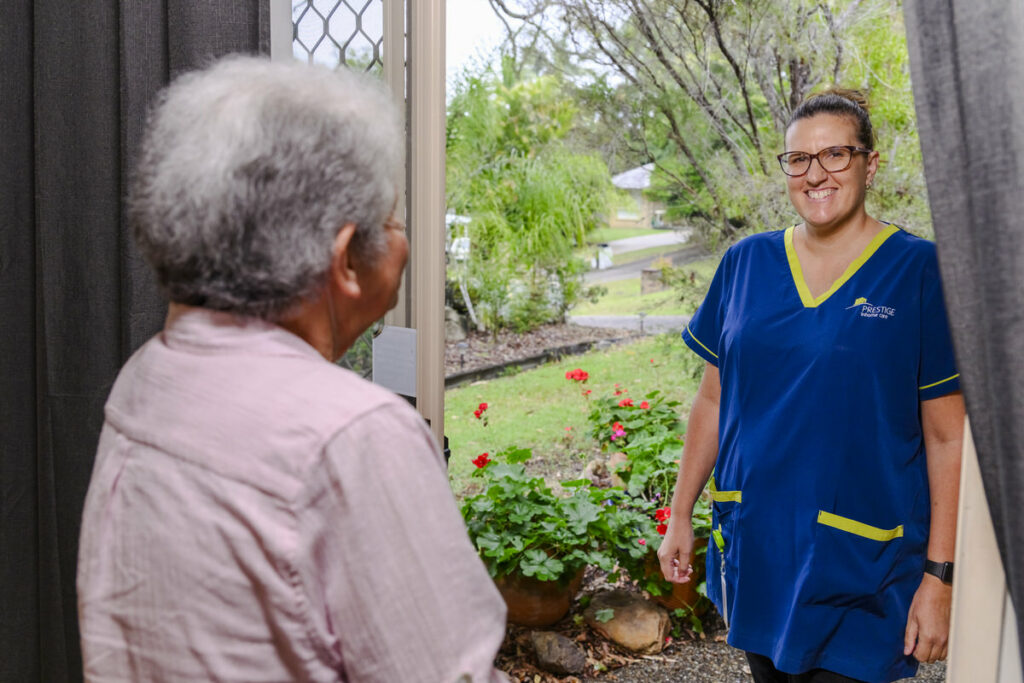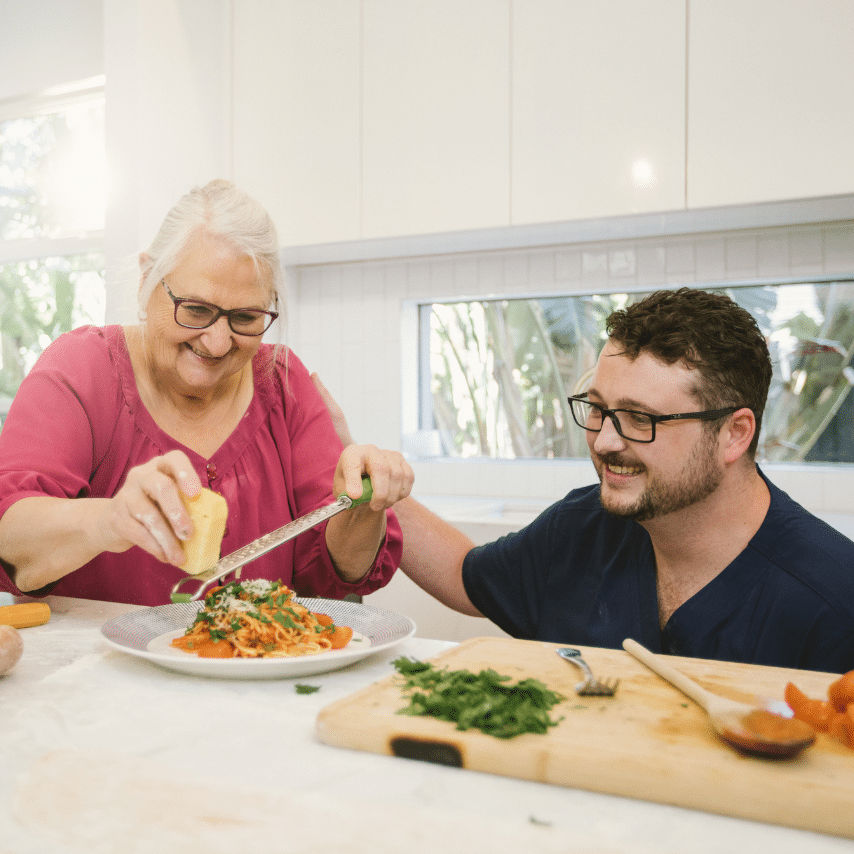As your loved one ages, you may notice changes that can be challenging to address. It’s important to recognise how difficult it can be for them to accept more help at home, especially when their independence is so important to them. Conversations about increasing support can understandably cause anxiety.
Whether it’s about home maintenance, finances, medical follow-ups, driving, or personal safety, these topics are tough to tackle. To help you prepare, here are some suggestions drawn from years of experience.

Prestige Inhome Care CEO Nick McDonald recommends:
“Don’t wait until you’re in a crisis to have difficult conversations. It may take time and a few different approaches before they change their mind.
Allow yourself time to have the conversation in a calm and relaxed manner.”
Prepare for the conversation
- Speak with other family members or loved ones to get their support.
- Do some research if you are considering outside help and draw on the similar experiences of trusted friends who your loved one can relate to.
- Consider their possible reactions and questions. Be prepared with answers to manage their fears or resistance early on.
Outline the benefits
- Highlight the benefits your loved one is enjoying in allowing others to help them.

Give examples of how having a helping hand improves quality of life and convenience, such as cleanliness, safety, companionship, more socialising in the community – these things may not have been obvious but will help present necessary changes in a positive way.
Improved safety
Perhaps your loved one has begun to doubt their own abilities or capacity to manage. This could be with keeping on top of their bills, managing appointments, the stress of driving, or keeping up with house chores.
Remind them that personal services are designed to improve life balance – having the advice, expertise and added help of a professional can also improve their safety, physicality, financial safety, reduce risk with mobility and transportation and any other relatable advantages.

Bring their carer into the conversation
Jodie, Prestige Case Manager recommends:
“Invite their carer into the conversation. Carers generally know their client well and understand their fears. They can support the conversation by offering their observations and outlining potential risks from a place of experience and responsibility for their care.”
- Carers have established trust and a comfortable working relationship with your loved one.
- They can provide a professional perspective and present facts without the emotional involvement of family members.
Encourage two-way communication
Include your loved one as an active participant in the conversation. Don’t talk at them, converse with them. Ask them about their opinions and feelings.
We suggest the following questions to help draw them in to the conversation:
- What tasks or activities are becoming more challenging for you lately?
- How do you feel about the idea of having a bit more assistance to make things easier?
- Are there specific concerns you have about increasing the level of help?
- What would make you feel more comfortable with accepting additional support?
- What are your thoughts on trying a bit more help on a trial basis to see how it feels?
Prestige is here for you.

If you need further support in talking to your loved one about accepting help at home, contact their Case Manager. They are happy to help and understand the needs of their client.
For more information on respite care, transportation, or any of our services, call our friendly team on 1300 10 30 10 for no-obligation advice.
